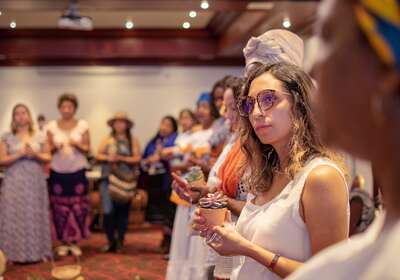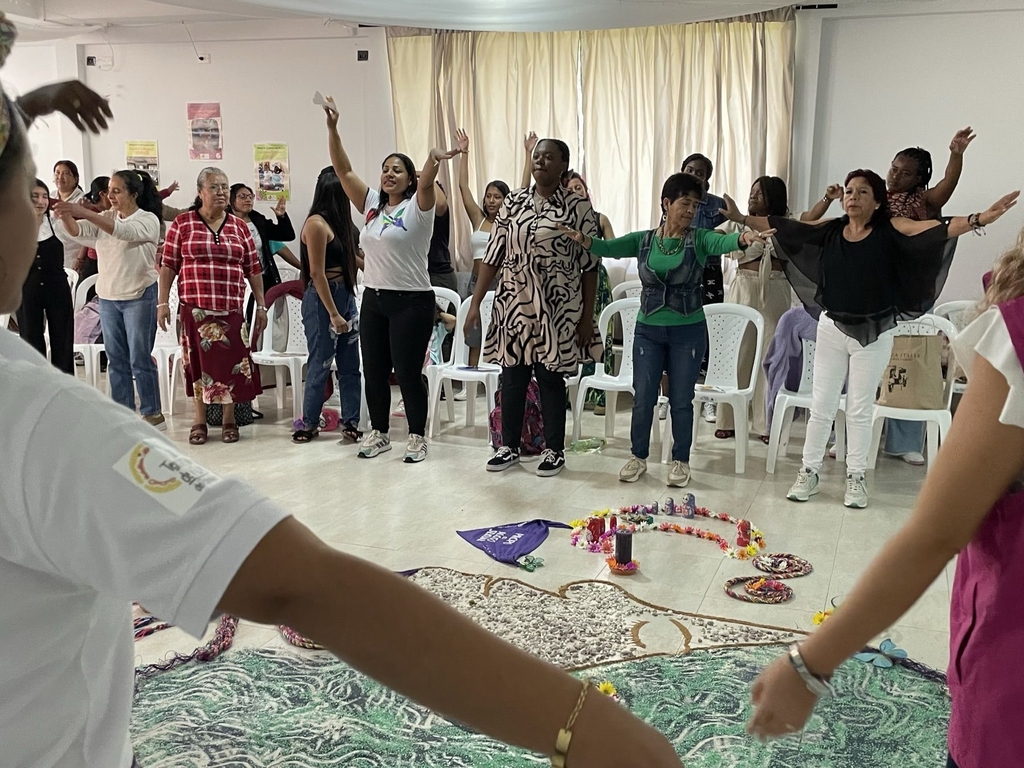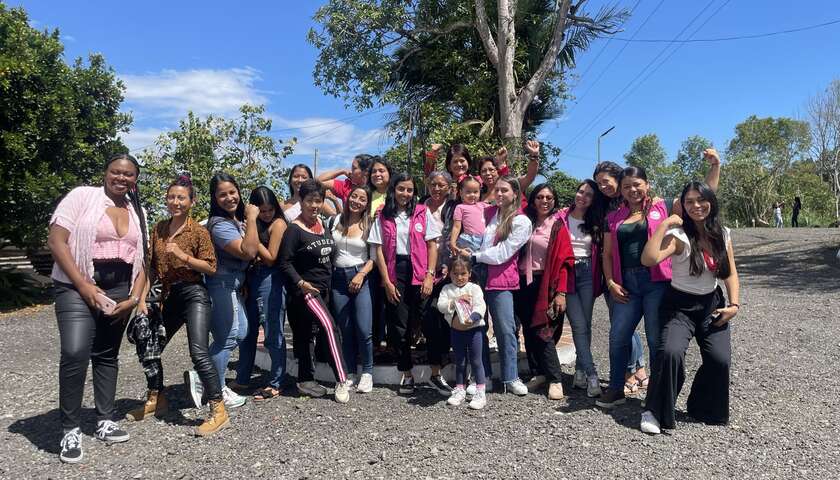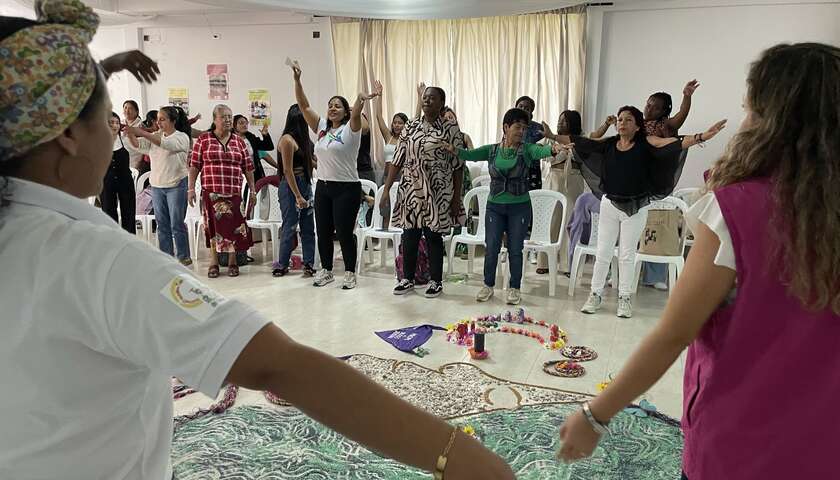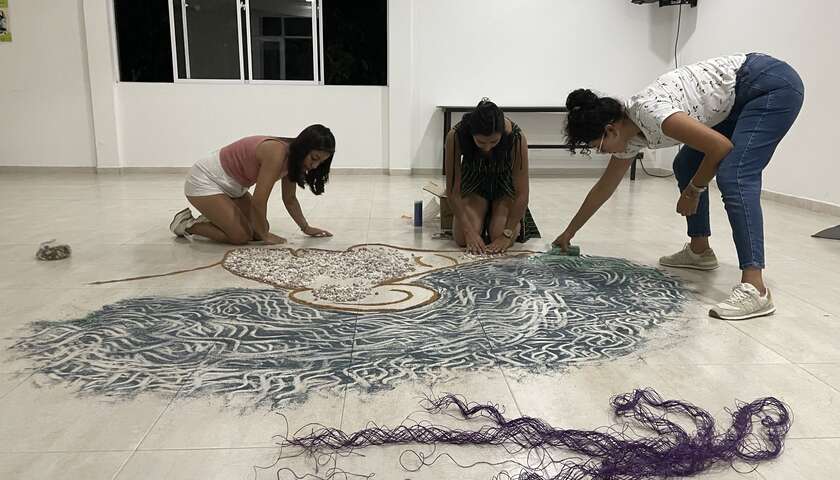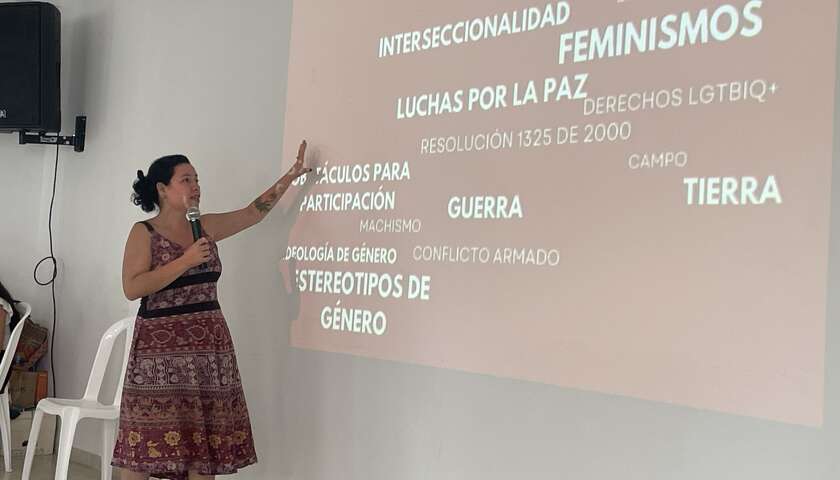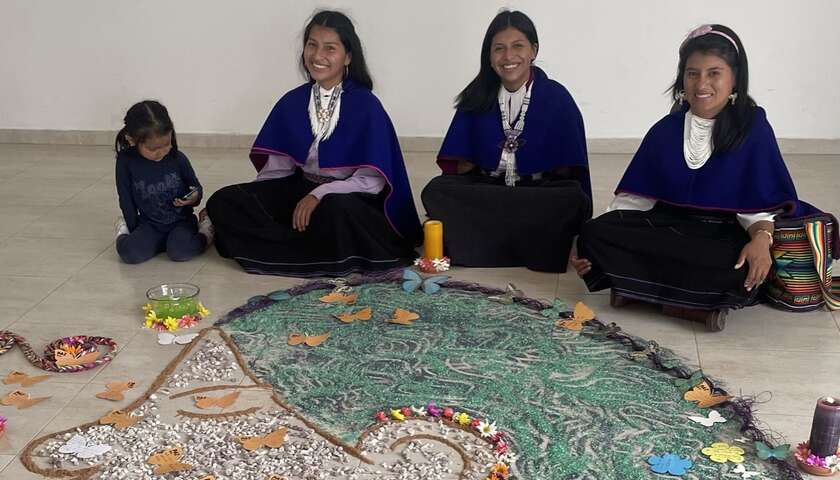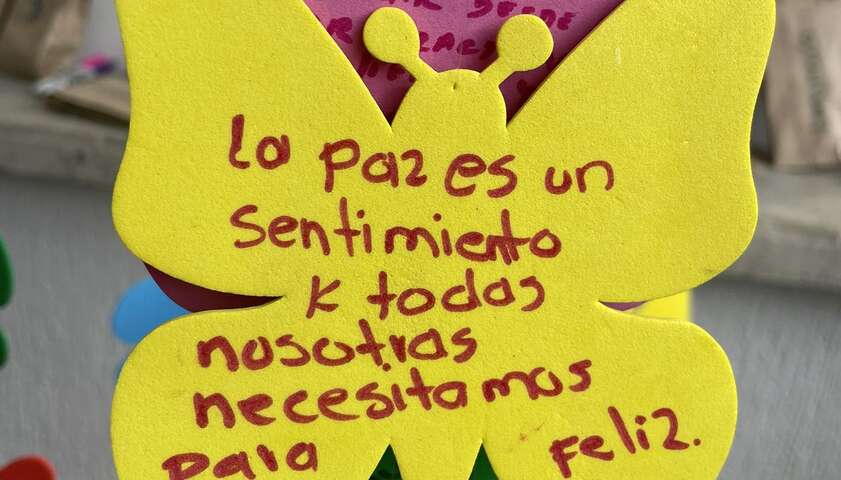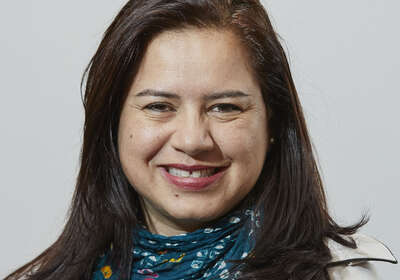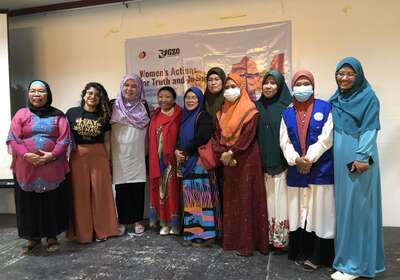Conflict-affected women from four different regions participated in a Women’s Peace Table in southern Colombia in the summer of 2023. On the agenda for the two-day gathering organised by our partner organisation Comunitar: create a space for women to exchange experiences and to deepen their knowledge on transitional justice and reconciliation. Our programme manager Karin Widmer was there.
It is early morning in a neighbourhood near Popayán. The women are arriving, some from nearby, many from remote regions like Santander or Putumayo. They travelled by car or bus, some on foot. The venue for the Women’s Peace Table (WPT) with its green garden and white indoor hall comes alive with laughter and joyful greetings of those who are meeting again or being introduced as newcomers. Some of the women add items to the colourful mandala prepared by our partner organisation Comunitar. All are eager to start.
The more than 100 participants, staff and resource persons form a circle around the mandala, decorated with flowers, candles, colourful stones and butterflies. The mandala is the logo of the WPT: the face of a woman. Comunitar integrates the psychosocial approach into all its activities; it is part of its institutional profile as an eco-feminist NGO. We hold hands, close our eyes and start by reconnecting with the first “territory of peace”: our bodies. A Comunitar staff member, a psychologist, leads the session and allows us to connect with ourselves so that we are empowered and equipped to connect with others and to confront the realities of the ongoing conflicts in Colombia.
Connected by their commitment to peace
The women are a diverse group: they describe themselves as farmers, afro-descendants, indigenous peoples, students, members of the LGBTIQ+ community and rural women from conflict-affected territories. What connects them? They are all affected by the different on-going conflicts in Colombia – despite the 2016 peace agreement with the FARC (Fuerzas Armadas Revolucionarias de Colombia) – and they are all are committed peacebuilders.
One aim of the WPT is to deepen the women’s knowledge of the mechanisms of transitional justice (TJ) with the support of resource persons from the Peace Commission of the University of Cauca and from the regional branch of the Special Jurisdiction for Peace (JEP, Jurisdicción Especial para la Paz). The JEP, part of the Comprehensive System of Truth, Justice, Reparation and Non-Repetition (Comprehensive System for Peace) that was created with the 2016 peace accord, is tasked with administering transitional justice and dealing with crimes during the armed conflict, in particular crimes that constitute serious violations of International Humanitarian Law or Human Rights Law. The JEP’s declared objectives are to satisfy the victims' right to justice and to protect their rights, to provide truth to Colombian society and to contribute to a stable and lasting peace.
Political participation is crucial
During the WPT, the resource persons explain what the women’s rights are and how they can make use of the TJ mechanisms. JEP works with organisations like Comunitar to ensure an equal and diverse representation of women’s voices and experiences in dealing with Colombia’s past and in seeking restorative justice. The women learn how they can be part of these processes. In their discussions, they strategise how they can become a strong voice in this period of transitional justice and contribute to and demand justice. They are clear in their recognition that it’s not enough for women to be part of peace processes; their political participation is crucial to securing the gender-sensitive outcomes of the TJ mechanisms.
It is realisations like these and the strategies that grow from the discussions at the WPT that mark the shared space during the two days. “We need these Peace Tables,” one participant says. “We need to understand how the Comprehensive System works. And we need to learn proactive tools for the Paz Total [Total Peace]. How can we be mediators?”
Harsh realities: feminicide
But it is also the harsh realities in the territories that emerge throughout the WPT. “We talk about peace, but in our territorios there is still war,” says a woman. Diana Granados, the resource person from the University of Cauca, pauses, then walks to the centre of the room to share a story from the previous night. She was in her room preparing an analysis of the achievements of the 2016 peace process and the participation of women in such processes. Suddenly: four gunshots. She ran out onto the street to see what was going on. Soon after, she learned that a young woman had been shot by a man. Another feminicide in Colombia. “So, I was preparing this talk about peace and next door a woman was killed. This is our everyday reality,” Diana says.
Yet the women continue to work for peace, despite the danger and the setbacks. They draw hope from gatherings like this WPT. “Every day I feel more powerful. These gatherings let each of us grow more,” one participant reflects. The women agree: “The only way is peace.”
We form another circle to close the WPT. We hold each other’s hands again and connect with our bodies. I can feel the women’s courage, their compassion, their pain and their commitment to continue on the path of peace. And I remember a wall-painting I saw in a village in Cauca: “La Paz comienza con una sonrisa.” Peace starts with a smile.
Una versión del artículo en español se encuentra disponible para su descarga en esta página.
